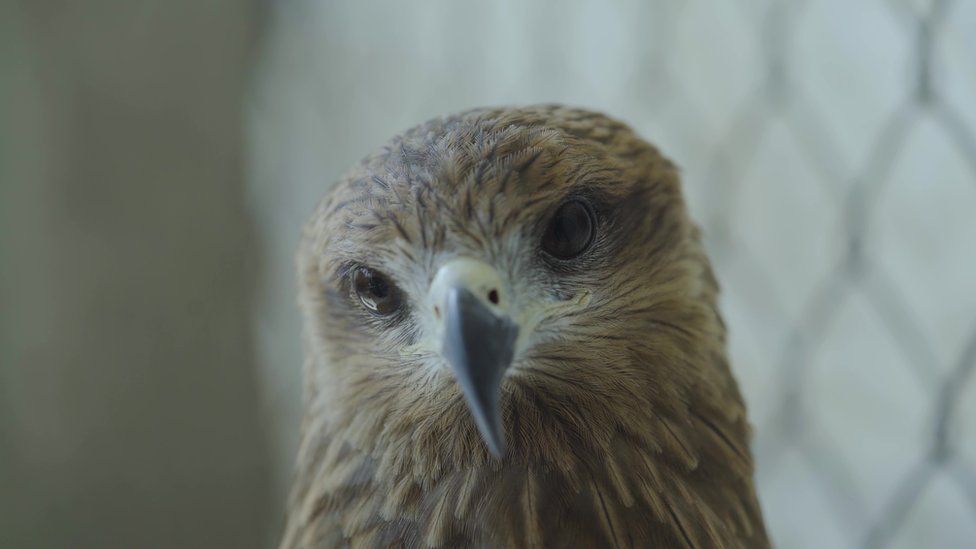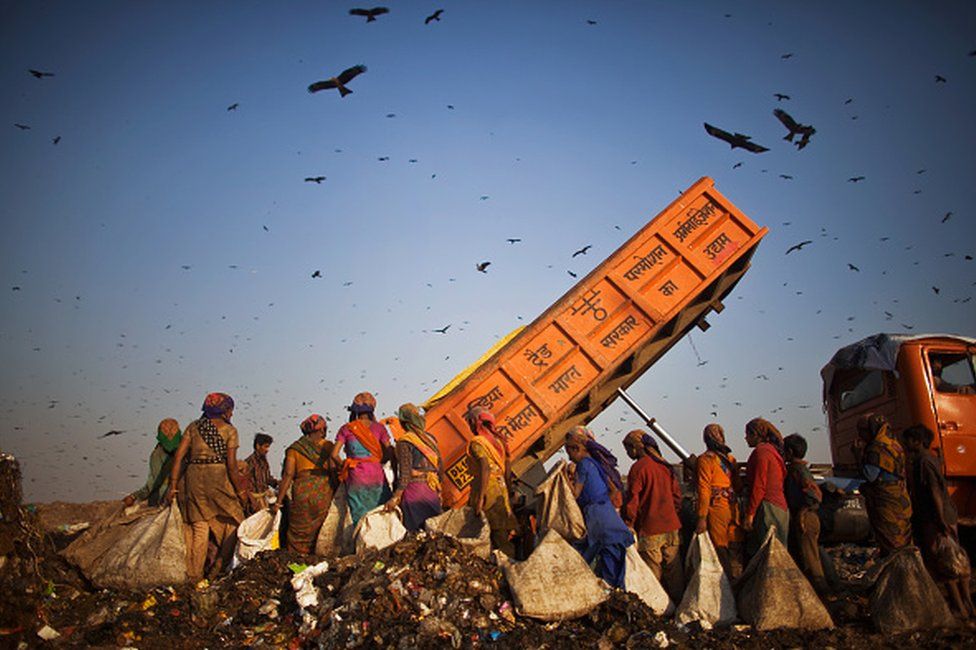For 20 years, two brothers living in the squalid neighbourhood of Wazirabad in India's capital, Delhi, have been treating wounded black kites that fall from the city's leaden skies.
Mohammad Saud and Nadeem Shehzad rescue birds of prey – mostly injured by paper kite strings coated with crushed glass – and carry them in cardboard boxes to a claustrophobic basement garage at home. Here, they begin nursing them to health: cleaning and bandaging wounds, fixing slashed wings and broken bones.
"You don't care for things because they share the same country, religion or politics," intone the brothers in All That Breathes, an award-winning documentary film on their work.
"Life itself is kinship. That's why we can't abandon the birds."
All That Breathes – the recent winner of the World Cinema Documentary Competition at the 2022 Sundance Film Festival – is not a film that is eager to startle or preach.
Shaunak Sen's 91-minute documentary is, at once, a meditative tribute to the brothers, a rumination on climate change, and an unsparing look at life in Delhi's dystopian underbelly. The Hollywood Reporter calls it a "tiny marvel of a documentary, it's a little and a lot all at once".
The dank and derelict basement, where much of the film is shot, has a quiet and purposeful air. The brothers treat the maimed birds on a table. Crammed cheek-by-jowl are men at metal-cutting machines making liquid-soap dispensers, a small family business. A hatchback is parked in a corner.
 Image source, SAUMYA KHANDELWALImage caption, The brothers treat the maimed birds in a derelict basement garage
Image source, SAUMYA KHANDELWALImage caption, The brothers treat the maimed birds in a derelict basement garage
Small miracles happen in the basement. Here lives are saved, a living is made and there's some levity too. A young assistant to the brothers wonders what will happen to the birds in the event of a nuclear war between India and Pakistan. "Where did you hear that?" asks one of the brothers. "I read it on social media," the assistant says.
Upstairs the family is huddled around the TV that is reporting news of riots breaking out in the city between Hindus and Muslims over a controversial citizenship law. (This was in early 2020.) Outside, kites hover in the smoky air, looking for food on the ground. Not far away, coated in a foamy froth of Delhi's sewage and effluents, the Yamuna river struggles to flow.
On the roof, where the brothers take the birds to recuperate in cages, a kite swoops down from the skies and snatches the assistant's glasses. "Why did the bird steal my glasses?" he wonders pensively.
- Why flying kites in India can be deadly
- India's bird population 'going down sharply'
The brothers talk about how a neighbourhood bird hospital refused to treat the first kite they rescued because it was a "non-vegetarian bird". At that time, they were teenage bodybuilders and that's how they "came to know about flesh, muscles and tendon". They figured out ways to bandage the kites, and learnt on the job. They became obsessed with birds.
"We'd lie on the ground, watching the elegant curves in the sky," they say. "The head would spin. Have you ever felt vertigo looking into the sky?"
Sen, who has lived all his life in Delhi, told me the idea of the film began with a "visual texture" in his mind: "The hazy sky where the sun is a diffused blot, the all-encompassing greyness, the constant breathing of noxious air." The brothers, he found, had a "deep and profound relationship with the skies and the birds". He spent three years making the film.
 Image source, Image courtesy Kiterabbit FilmsImage caption, The birds are mostly injured by paper kite strings coated with crushed glass
Image source, Image courtesy Kiterabbit FilmsImage caption, The birds are mostly injured by paper kite strings coated with crushed glass
Using languid pan shots, Sen's unerring eye for detail helps paint an apocalyptic picture of life in Delhi – an "open wound", as the brothers describe it. Kites looking to scavenge rubbish from a 20-storey-tall rubbish mountain choke the skies. A chimney endlessly belches black smoke.
The cratered street outside the brothers' home becomes a fetid pool of sewage water which leaks into the basement during monsoon rains. Feral pigs wallow in a muddy drain. Air quality reaches dangerous peaks. "My throat feels like charcoal," Mr Shehzad says.
Yet there's life – and hope – in this grotty urban jungle. Monkeys clamber playfully over a thicket of electric wires that hang precariously over narrow streets. An airplane in the sky is reflected in a pool of stagnant water where a centipede slithers. The brothers play cricket in the basement, and eat ice creams in the pouring rain to celebrate government approval for foreign funding for their non-profit.
When the weather clears, the roofs of the matchbox-sized brick homes are crowded with people, and skies are aflutter with their warring paper kites. And then the birds begin dropping, and the brothers are back at their job.
At one point, there are more than 100 wounded birds in the basement. Sometimes they fall after colliding against buildings in the smog or getting entangled in overhead wires. The brothers swim across the river to rescue a bird with a broken wing.
A neighbour appears at the door, looking for tips to protect himself from kites swooping down on his rooftop. They head up there and spot a nestling in a neighbouring building. Carry a stick, wear a helmet and look directly at the bird, which is possibly a hungry mum circling above, they advise him.
 Image source, Getty ImagesImage caption, Kites hover in the skies over many parts of Delhi, including a vast landfill in Ghazipur
Image source, Getty ImagesImage caption, Kites hover in the skies over many parts of Delhi, including a vast landfill in Ghazipur
The brothers, says Sen, have the "front row" to the unfolding apocalypse – "there are birds falling from the skies, and apocalypse doesn't get more cliched than that". Yet, they have a "wry resilience… the sense of putting your head down, being unsentimental about what you do, and soldiering on".
But their stoicism is also tempered by trepidation.
"You don't know how times go by in this small basement. One day I'd get a heart attack and fall on this damp floor, right here," one of the brothers says in the film.
"My chest would burst open and kites would fly out, from inside."
![]()
You may also be interested in:
This video can not be played
To play this video you need to enable JavaScript in your browser.
Media caption,
Why hundreds of parakeets visit the same terrace every day
![]()
